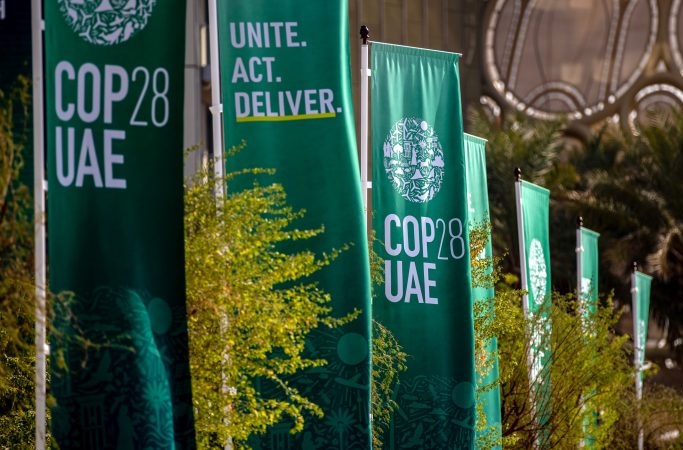11 Dec 2024

Tired Earth
By The Editorial Board

Hydrogen, a clean burning gas, is expected to play a crucial role in decarbonising heavy industries like steel and chemcials. Countries like Germany plan to import large amounts of hydrogen from regions that can produce the gas at low cost by splitting water molecules using solar electricity.
But hydrogen comes in many forms, from extremely dirty when produced using coal to very clean when created using wind or solar power. To ensure producers of green hydrogen are able to trade the gas, a globally accepted standard is necessary.
That is precisely what a coalition of some 30 countries is working on.
“This is a breakthrough,” explained Sigrid Kaag, deputy prime minister of the Netherlands, during a panel discussion at the COP28 climate sumit in Dubai on 5 December.
The standard would “enable cross-border flows of renewable and low-carbon [hydrogen] over long distances for the first time in history,” she said.
Today, the lion’s share of hydrogen is produced and used locally – mostly by the chemical industry and refineries. But as demand grows in industrialised countries, so does demand for hydrogen shipments.
So Japan, Germany, Namibia and the UAE are launching a “mutual recognition of certification” agreement, signed by some 30 countries, including India, the US, Brazil, Saudi Arabia and Chile. China is not a signatory.
The alliance brings together would-be consumers and producers of clean hydrogen.
As Germany’s demand “will continue to rise exponentially until 2050, large quantities of our hydrogen needs will have to be imported,” explained Stefan Wenzel, German state secretary standing in for vice-chancellor Robert Habeck.
To back the announcement, Germany pledged another €125 million to the green hydrogen fund at the European Investment Bank.
From Africa’s perspective, hydrogen is a “crucial enabler for transporting clean electrons and molecules,” explained Tom Alweendo, energy minister of Namibia, a country blessed with huge amounts of sunshine.
“By creating a framework based on shared principles, we aim to avoid market fragmentation,” said Alweendo. Doing so could also ensure that the value of hydrogen is “determined not only by its energy content but also by its sustainability attributes.”
New ISO standard
The initiative is underpinned by the launch of a truly global standard: a serial number at ISO, the International Standard Organisation.
“Today marks the public launch of the methodology for greenhouse gas emissions assessment of the hydrogen supply chain developed by ISO,” explained Ulrika Francke, the president of ISO.
The official denomination is “ISO/TS 19870:2023″ and will be at the heart of the world’s hydrogen rulemaking going forward.
“This is a truly international methodology” aimed at tracking the gas from production to consumption, and assessing what occurs at all stages, including transport, she added. The standard will also include a leakage assessment, in a nod to growing concerns on the climate impact of leaked hydrogen.
Her organisation’s new methodology is “an enabler and a tool to help build investors’ confidence and consumer trust in hydrogen pathways,” said Francke.
Source : euractiv.com
Comment